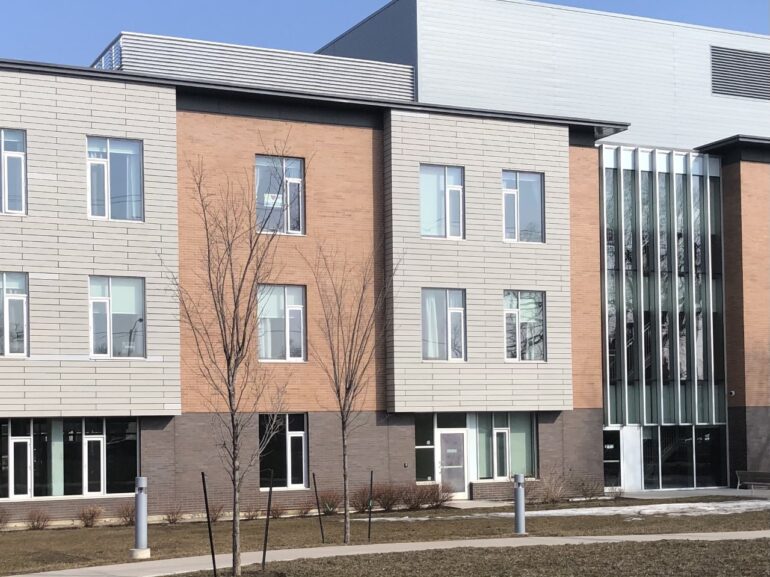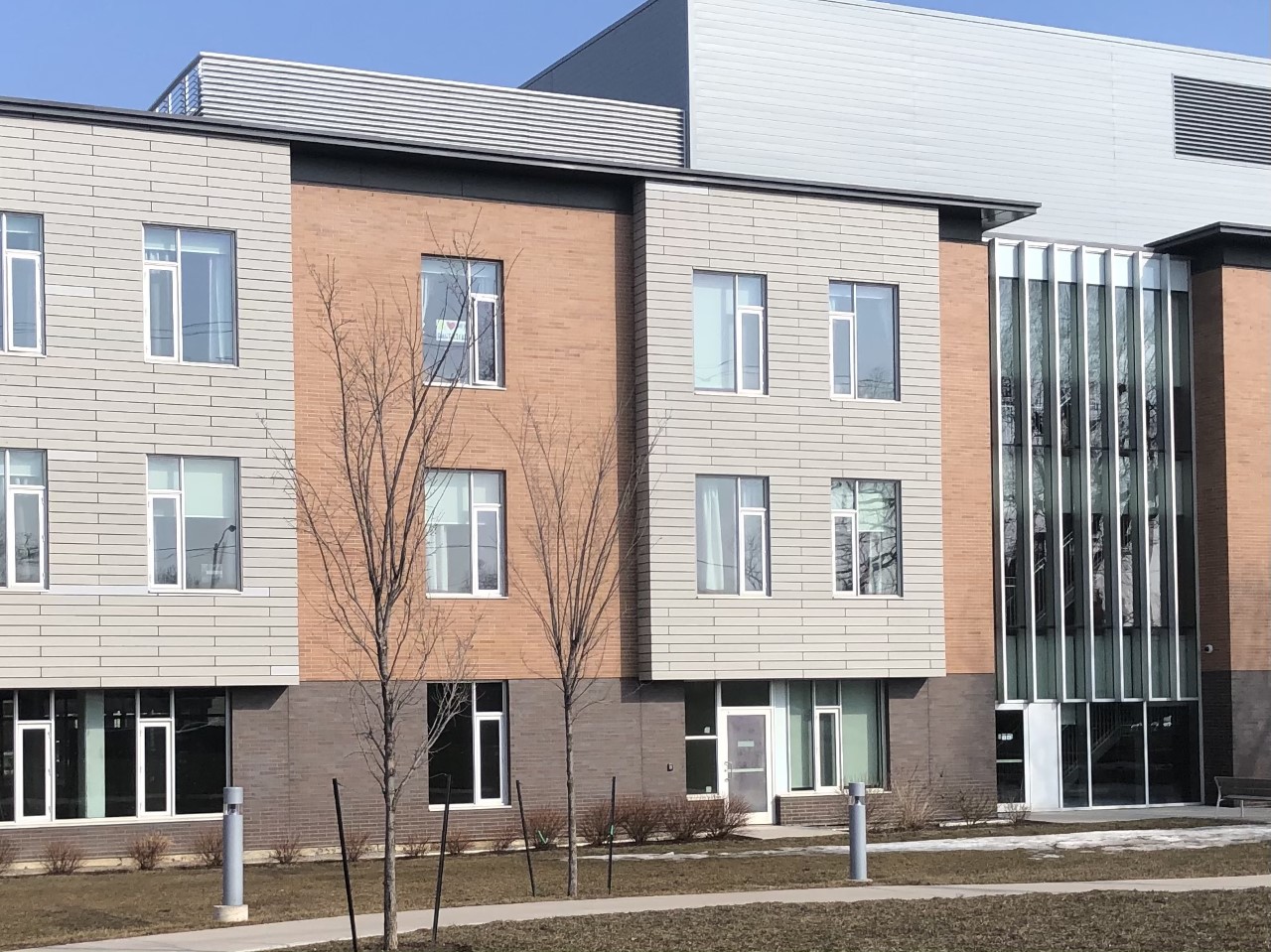The Ontario government announced it will provide training for hundreds of Personal Support Workers (PSWs) across the province within long-term care facilities.
The government provided $4.1 billion in funding to train 373 new personal support workers, according to a Labour, Training, and Skills Development of Ontario media release.
The training is set out to provide additional health and safety measures through education to minimize exposure to infection for PSWs, staff, and residents, the ministry said.

Kipling Acres Long Term Care located in North Etobicoke is shown. The center is following safety protocols to keep staff and residents safe by carefully screening staff and ensuring contact tracing is complete. Photo credit: Alleiya Tinglin- Dystant
PSWs provide non-medical care to residents that are not physically or mentally able to help themselves, according to Home Care Ontario. The daily tasks of PSW may include personal hygiene, feeding, repositioning, and turning the patient, it said.
Kimberley Sampson, a retired Registered Nurse at Fred Douglas Lodge in Winnipeg Man. said she was responsible for overseeing PSWs when they would perform non-medical care she also had to maintain government standards of infection control, medical care, and cleanliness at the long-term care facility.
“Every couple of years, the government comes and checks whether you meet the standards, with cleanliness, infection control, and resident safety,” Sampson said.
A major difference she noticed working in Manitoba is one resident is assigned to a room, whereas in Ontario there are two or more residents in one room, she said.
This could have led to poor infection control in Ontario, which contributed to infection outbreaks within long-term care, Sampson said.
Tanya Blazina, a spokesperson with the Ministry of Long Term Care, said the government has been working to protect the most vulnerable and on enhancing training for PSWs.
The Accelerated PSW training program is a collaboration with participating colleges to integrate components of the existing program and requires students to complete more hours of instruction per week, Blazina said.
“The program was previously eight months but now has been reduced to six,” she said. “PSW programs are typically two semesters in length at publicly-assisted colleges with the credential offered as an Ontario College Certificate.”
PSW students are expected to accumulate 600 hours, which includes a student placement in a health care setting during the program, Blazina said.
The PSW course has evolved so much over the years, Sampson said.
“When I was in the program in the ’90s, it was just scratching the surface compared to what they do now,” she said. “In the role of an educator, I was able to see what PSWs were learning and speak with their teachers.”
As students complete their placements, they will be provided with full Personal Protection Equipment (PPE) for safety and will be working alongside nurses and certified PSWs, Blazina said.
“We have enhanced testing requirements for staff and essential caregivers. All long-term care homes must ensure that staff, students, and volunteers working in the home take a COVID-19 test every week,” she said.
Infection control has remained a focus within long-term care facilities which hopes to reduce community spread, Blazina said.
When an outbreak is declared in a home, meaning one staff or resident tests positive for COVID-19, the action is taken right away, she said.
“The local public health unit, Local Health Integrated Network (LHIN), Ontario Health, and the Ministry of Health are all called to respond to outbreaks and will continue to listen to health experts,” Blazina said.

